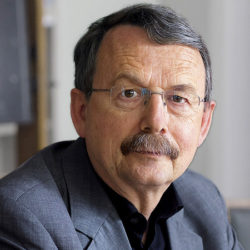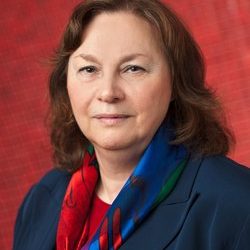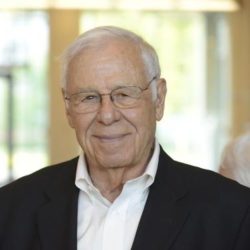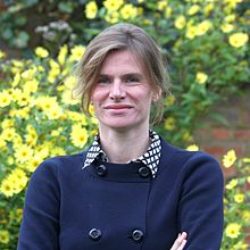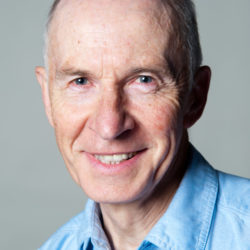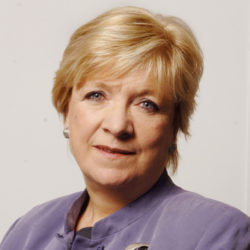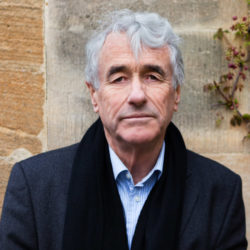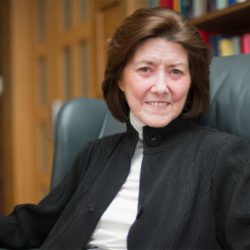Mini-Conferences
SASE received an astonishing, record-breaking number of submissions for mini-conference themes this year. We are pleased to announce those selected for our 2015 annual meeting!
Submissions to the SASE conference must be made through one of the mini-conferences below (or through a research network). Paper and session abstracts as well as full papers for grant, prize, and stipend applications must be submitted to all networks by February 9, 2015. Candidates will be notified by March 9, 2015. Please note that mini-conferences require an extended (~1,000 word) abstract, and ask that you submit a full paper by June 1st. For further information, please contact the organizer of the mini-conference to which you are submitting.
Mini-conferences are based around a selected number of focused themes, and have open submissions for panels and papers, based on an extended abstract (approx. 1000 words). Each mini-conference will consist of 3 to 6 panels. Each panel will have a discussant, meaning that selected participants must submit a completed paper by June 1st. In the event that a Mini-Conference proposal fails to attract sufficient participants to make three viable sessions, the conference organizers reserve the right to move any sessions which are organized into an appropriate Network. If a paper proposal cannot be accommodated within a mini-conference, organizers will forward it to the program committee, who will pass it on to one of the networks as a regular submission.
Continuity and Change in National Systems of Collective Bargaining in a Context of Crisis
detailed info Aristea Koukiadaki
Aristea Koukiadaki

Aristea Koukiadaki is Lecturer in Employment Law at the University of Manchester. Her research focuses on the empirical study of law and on applied legal and policy analysis, with particular reference to labour market regulation, corporate governance and EU social policy. It has been theoretically driven by an interest in the application of social systems theory and the capability approach to the study of supranational regulation and its relationship with national legal and economic systems and has been funded by a number of organisations, including the Economic and Social Research Council, the European Commission, the European Foundation for the Improvement of Living and Working Conditions and the Leverhulme Trust. She is research associate at the Centre for Business Research (University of Cambridge) and a member of the Transnational Trade Union Rights Experts of the European Trade Union Institute (ETUI).
 Miguel Martinez Lucio
Miguel Martinez Lucio

Miguel Martinez Lucio is a Professor at The University of Manchester. He has worked on the question of work and employment relations from a comparative perspective. He is interested in the way the question of regulation and rights are being changed by ongoing marketization and privatization. He is involved in various labour networks and has written on issues of worker representation in terms of the implications of organizational change and greater fragmentation in social and economic terms.
 Isabel Tavora
Isabel Tavora

Isabel Tavora is a lecturer in Human Resource Management in Manchester Business School and a member of the European Work and Employment Research Centre and of the Fairness at Work Research Centre, both at the University of Manchester.
After completing her PhD at the University of Manchester in 2009, Isabel started her lecturing career in Bristol Business School at the University of the West of England where she worked until returning to Manchester in August of 2012.
Isabel’s research interests lie mainly on comparative employment policy and industrial relations, gender equality and work-family reconciliation. Since November 2013 she has been part of the coordinating team of a European Commission-funded project that investigated the impact of the recent recession on employment regulation and collective bargaining in manufacturing in seven European countries.
The sovereign debt crisis, which began in Greece in 2010 and then spread to several other Eurozone economies, is having profound consequences for the labour law and industrial relations systems of the debt-affected member states and for the role of social policy at EU level. Driven by the need to initiate a process of ‘internal devaluation’ so as to restore the competitiveness of the national economies, public deficit reduction measures have been coupled in a number of EU Member States with in-depth structural labour market reforms. The latter are not only aimed at ensuring wage moderation but also at amending essential features of the industrial relations systems via changes in employment protection legislation and collective bargaining. Earlier comparative studies have illustrated the positive impact of social dialogue in periods of crisis. However, the majority of research so far has concentrated on the impact of the crisis and less attention has been paid on the specific question of the role of the structural labour market adjustments in reconfiguring the space for the articulation of management and employee interests and the development of social dialogue in a fragmented context. Given that collective bargaining has been one of the key institutional features of the European social model, it is crucial to increase our comparative understanding of the processes, content and outcomes of collective bargaining in different European countries.
Against this context, this mini-conference seeks contributions that examine the following issues from diverse theoretical and methodological perspectives such as sociology, economics, employment relations, public policy and law. If bargaining decentralisation takes place, what are the emerging patterns and why do they vary? Are there any procedural guarantees in place so as to avoid the development of a ‘disembedded’ form of capitalism? How is social dialogue understood in such a context of change in different national environments and how do developments in the European economic governance affect this understanding? What is the role of the state in this new reconfiguration in terms of policy and state agencies? Will the approach of employers’ organisations reflect the existence of divergent interests even internally within each country? How will trade unions attempt to maintain their representational capacity and articulate their members’ interests, whilst taking into account increasing inequalities within and between Member States?
Domesticizing Financial Economies, Part 2
detailed info Joe Deville
Joe Deville
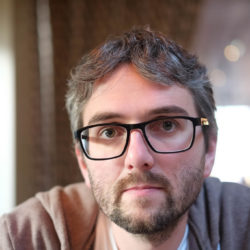
Joe Deville is a lecturer at Lancaster University based jointly in the Department of Organisation, Work and Technology and the Department of Sociology. His first book, Lived Economies of Default: Consumer Credit, Debt Collection, and the Capture of Affect was published by Routledge in early 2015. He is working on a number of ongoing collaborative projects, including an analysis of new online, lending platforms that use big data to assess creditworthiness. He is an editor and co-founder of the Charisma: Consumer Market Studies network, an Editor at Journal of Cultural Economy, and a co-director of the Centre for Mobilities Research.
 Jeanne Lazarus
Jeanne Lazarus

Jeanne Lazarus is a tenured CNRS research fellow at the CSO in Sciences-po (Paris). Her research has focused on relationships between bankers and customers in French retail banks. She published L’Epreuve de l’argent in 2012, and edited several special issues on banking, credit and money management. The latest was co-edited with Mariana Luzzi «L’argent domestique: des pratiques aux institutions». Jeanne has also conducted research on the sociology of money and the consumption and monetary practices of the impoverished. She is currently studying the ways in which public policy structures household finances and conceives the protection of populations deemed to be at risk of financial insecurity, due to precarious employment and the withdrawal of social welfare provisions.
 Mariana Luzzi
Mariana Luzzi
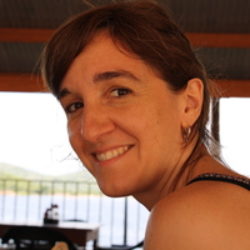
Mariana Luzzi is Sociology Professor and CONICET research fellow at the University of General Sarmiento (Argentina). She received a Ph.D. from École des Hautes Études en Sciences Sociales. Her research explores the social construction and questioning of trust in money and social disputes over money meanings and politics. She has studied the conflicts about bank deposits, credits and regional currencies during the Argentine crisis of 2001 and is currently working on the dollarization of money practices in Argentina since the 1960s. She has also conducted research on the creation and use of social currencies. She published Réinventer le marché? Les clubs de troc face à la crise en Argentine.
 José Ossandón
José Ossandón
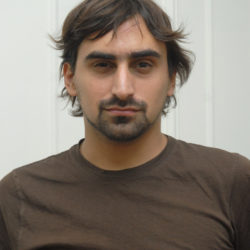
José Ossandón is Assistant Professor in the Department of Organization, Copenhagen Business School and received his PhD from Goldsmiths, University of London. His main areas of interest are the enactment of finance objects, how markets are organized, evaluated and tamed, and broad contemporary social theory. His Ph.D. thesis focused on the history of private health insurance in Chile and is currently studying the consumer credit industry. José coordinates the collective academic blog https://estudiosdelaeconomia.wordpress.com/, has recently co-edited the books Adaptación. La empresa chilena después de Friedman and Disturbios Culturales and his most recent articles appeared in the Journal of Cultural Economy, Consumption Markets & Culture and the collected book Making Things Valuable.
Domesticizing Financial Economies, Part 2 will pursue the discussions started in at the 2014 annual SASE meeting at what has now become Domesticizing Financial Economies, Part 1. We invite papers that look at specific situations of monetary transaction, credit and domestic money management. Our starting point is that the use of even the most sophisticated financial products can be understood in the light of a close empirical description of their contexts of social ties and obligations, ways of calculating, devices and informational infrastructures. The highly specific and often domestic ways that monies circulate about come to matter greatly, including but not limited to the production and reproduction of inequalities and asymmetries of power. Rather than (or as well as) seeking to understand how financial economies are “economized”, to draw on a term used by Koray Çalışkan and Michel Callon, we are thus interested in work that explores how monetary transactions are woven into the fabric of the everyday and come to be “domesticized”.
Papers with varied disciplinary backgrounds discussing the following issues are welcome:
- The intimate dimensions of monetary and financial transactions, whether in the moment of exchange itself, or before and after
- Social inequalities rooted in and/or created by the intersection between financial products and the everyday
- The ways in which household finances become entangled with and affected by a range of socio-technical devices
- Emerging financial products and services (e.g. payday loans, credit score management services, department store credit cards, pawn shops and new ways of banking) targeting domestic finance that are re-shaping the financial ecologies faced by consumers
- New transactional technologies and infrastructures (e.g. algorithms, databases, payment cards) and their new ways of sorting, screening and valuing financial consumers
- Domestic financial products and their entanglement with “high” finance and broader economic chains
- Controversies, matters of concern, new affected groups, publics and commercial circuits being co-produced with contemporary domestic financial landscapes
Employers’ Organizations, Business Interest Representation, and Employer Collective Action
detailed info Marco Hauptmeier
Marco Hauptmeier

Marco is Senior Lecturer and Co-Director of the Employment Research Unit at Cardiff University. He holds a PhD from Cornell University and his research interests include comparative employment relations, comparative political economy and institutional theory. Currently, he is working on an ESRC Future Research Leaders project that examines collective action by employers and business interest representation in the United Kingdom. Marco has held academic visiting positions at the Max Planck Institute for the Study of Societies in Germany and the Juan March Institute in Spain. He has published in leading academic journals including Human Relations, Industrial Relations (Berkeley) and the British Journal of Industrial Relations. Recently Marco published the book Comparative Political Economy of Work (with Matt Vidal).
 Edmund Heery
Edmund Heery

Edmund Heery is Professor of Employment Relations at Cardiff Business School and an expert in UK Industrial Relations, best known for his work on trade unions. He has led projects on union organizing, union responses to contingent work, the changing role of the TUC, the involvement of unions in Amnesty International, and union policy on equal pay and work-life integration. More recently, Edmund has been involved in research on the role of civil society organizations in representing working people and has begun work on new forms of collective action by employers, looking in particular at Employer Forums that promote employer engagement with questions of equality and diversity at work. Edmund has been an advisor to the UK’s central trade union organization, the Trades Union Congress. He has also undertaken research work for Amnesty International UK, ACAS, and the Welsh Government. Among Edmund’s publications are Union Voices: Tactics and Tensions in UK Organizing (Cornell University Press, 2013) (with Mel Simms and Jane Holgate) and Framing Work: Unitary, Pluralist and Critical Analysis in the 21st Century (forthcoming with Oxford University Press).
 Leon Gooberman
Leon Gooberman

Dr Leon Gooberman is a Research Fellow in Cardiff University’s Business School, working on an ESRC funded project entitled Gaining Collaborative Advantages: the changing role of employers’ organisations in the British economy. He is particularly interested in the interplay between politics, economics and organisational behaviour and recently completed his PhD, entitled ‘Government intervention in the Welsh economy between 1974 and 1997’. This was the first thesis to examine the totality of efforts to develop the Welsh economy during the selected period, with interviewees including three former UK Government Cabinet Ministers, a former Welsh Government First Minister and individuals formerly involved in economic development at a senior level. Prior to his current post, he worked within economic development research and policy across local government and consultancy. His other qualifications are from the University of Aberystwyth and Liverpool University.
Collective organisation by employers and businesses is both an established and, in certain respects, a growing feature. In many Western countries employers’ associations continue to set industry-wide terms and conditions through collective bargaining with trade unions in a number of sectors. In other sectors, although industry bargaining has collapsed long-established employers’ associations, continue to exist but their function has changed and training initiatives and delivering services have become important focus. Other employer and business organizations continue to lobby governments and political parties with the aim of influencing and shaping policies and economic governance. The past two decades have also seen the emergence of at least two new forms of employers’ organizations. The first are employers’ forums, which are organisations that deal with single issues in the field of equality and diversity. The second are employers’ organizations created to promote Corporate Social Responsibility and ethical employment practices along supply chains.
The different types of employers’ organizations have various roles and engage in a range of activities. They offer services and represent the interests of their members, which include providing legal assistance, coordinating and organising joint training initiatives, lobbying government, networking, conducting collective bargaining, providing assistance in implementing government policies, self-regulation of sectors and developing codes of conduct. Other collective employer activities are hidden from the public or even illegal such as the blacklisting of union members in the United Kingdom. Beyond looking at the various activities of employer organizations, this mini-conference will also assess the wider impact of the work of employers’ organizations for stakeholders in society such as employees, labour unions and the government.
Despite the various collective activities of employers and importance in social and economic governance, the role of employers’ organizations and other forms of employer collective action remain somewhat underexplored in various fields of studies. Thus, the overarching goal of this mini-conference is to examine the activities of employers’ organizations and other types of employer collective action. We welcome contributions from a variety of social science disciplines, including political science, employment relations, Human Resource Management, economics, sociology and other fields of studies that are concerned with collective action by employers.
Inequalities in Youth Labor Transitions
detailed info Jacqueline O’Reilly
Jacqueline O’Reilly

Jacqueline O’Reilly is full Professor of Comparative HRM at the University of Sussex Business School and Co-Director for the ESRC £8 million investment in the Digital Futures at Work Research Centre (digit-research.org) (2020-24).
She is the UK lead on the Horizon 2020 EUROSHIP project on social protection in Europe (euroship-research.eu) (2020-23). Previously, she coordinated EU STYLE: Strategic Transitions for Youth Labour in Europe (www.style-research.eu) (2014-17) and was UK lead on the EU NEGOTIATE project (www.negotiate-research.eu) (2015-18).
Her most recent research focuses on the digital transformation of work, labour market policy and international comparisons of gender, ethnicity and labour market transitions across the life course.
She completed her doctorate at Nuffield College, University of Oxford on an Anglo-French comparison of employment practices in the banking sector. She worked for ten years at the Social Science Research Centre Berlin (WZB), Germany, and at Sciences Politiques in Paris, London, Manchester and Brighton Universities in the UK.
In 2000 she was awarded a Jean Monnet Research Fellowship at the European University Institute in Florence. She is a visiting research fellow at the Collegio Carlo Alberto, University of Turin, a member of the Scientific Advisory Board of Sciences Politiques, Paris, and Visiting Senior Research Fellow at the Wirthschafts- und Sozialwissenschaftes Institut (WSI), Dusseldorf.
She has served on the editorial board of the BJIR, Socio-Economic Review, and Work, Employment and Society where she was also Chair of the editorial board. She was elected twice to the Executive Council of SASE. In 2019 she was elected Fellow of the Academy of Social Sciences for her distinguished contribution to the field of interdisciplinary research.
She has been consulted by HM Treasury, Full Employment Team and the UK Cabinet Office Open Innovation Unit on equal pay and youth employment. She is an Evaluation Rapporteur for the European Commission Horizon 2020 research programme, was invited as an advisor to the ILO Work4Youth programme funded by The MasterCard Foundation, and was an evaluator on two occasions for the German Excellence Initiative of the Deutsche Forschungsgemeinschaft (€151 million investment).
She lives in Hove, UK with her two teenage sons where she enjoys living by the sea, watching Nordic Noir and discovering whether youth music today is better than that of the 1980s.
Researchgate.net: https://www.researchgate.net/profile/Jacqueline_Oreilly
ORCID ID: http://orcid.org/0000-0001-6223-154X
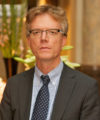 Werner Eichhorst
Werner Eichhorst
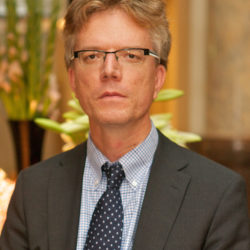
Werner Eichhorst is Director of Labour Policy Europe at the IZA, Bonn, Germany. From 1996 to 1999 he was doctoral and post-doctoral fellow at the Max Planck Institute for the Study of Societies in Cologne. In fall 1998 he received his doctoral degree from the University of Konstanz. From 1999 to 2004 he was project director at the Bertelsmann Foundation, a private think tank in Germany, where he was responsible for comparative analyses of the German labor market and related policy areas (“Benchmarking Germany”). After working with the Institute for Employment Research, IAB, from 2004 to 2005, he joined IZA as Research Associate in July 2005, became Senior Research Associate in February 2006, Deputy Director of Labor Policy in April 2007 and Director of Labor Policy Europe in January 2014.
His main research area is the comparative analysis of labor market institutions and performance as well as the political economy of labor market reform strategies. He also specializes in different aspects of the future of labor. At IZA he takes care of international and European policy-oriented research activities, addressing in particular EU level employment policies.
 María González
María González
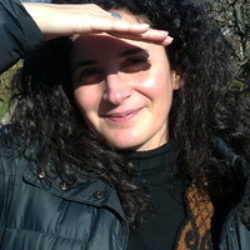
María C. González Menéndez is Associate Professor of Sociology at the University of Oviedo, Spain. Her active research interests include workers’ participation, gender and employment, labour management, and the role of sub-national socioeconomic governance systems in the attraction and retention of multinational firms. These interests are united by a strong internationally comparative focus on the role of social and political institutions in shaping the quality of work and employment. Recent publications include the book Women on Corporate Boards and in Top Management. European Trends and Policy (Palgrave, 2012), co-edited with Colette Fagan and Silvia Gómez, and the handbook on HRM in Spain Gestión de Recursos Humanos: Contexto y Políticas (Thomson-Civitas, 2011), co-edited with Rodolfo Gutiérrez and Miguel Martínez Lucio. She is currently co-leader of the work package on Policy Transfer and Comparative Frameworks within the large scale FP7 project Strategic Transitions for Youth Labour in Europe.
 Andy Hodder
Andy Hodder

Andy Hodder is a Lecturer in Employment Relations at the University of Birmingham. Andy joined Birmingham Business School in September 2012 after completing a PhD at Keele University. Andy has conducted research on public sector union organizing and the relationship between young workers and trade unions. He is also looking at trade union use of social media and the possibilities for trade union involvement in Corporate Social Responsibility. Andy is a member of the British Academy of Management, the British Sociological Association and the Society for the Advancement of Socio-Economics. Andy is also on the Executive Committee of the British Universities Industrial Relations Association.
 Lefteris Kretsos
Lefteris Kretsos
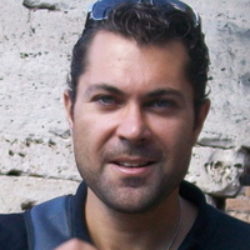
Lefteris Kretsos is a Senior Lecturer of Industrial Relations at University of Greenwich and Member of the ESRC Peer Review College. His research is focused on the rising trends and patterns of precarious employment, especially among young workers in the context of economic crisis. Lefteris has been involved in 22 research projects for the European Commission, ESRC, the European Foundation for the Improvement of Living and Working Conditions and various trade union organisations.
He is currently co-editing a book on Young Workers and Trade Unions, while he recently (2014) co-edited another book on Radical Unionism in Europe. He is also heavily involved in the completion of a project funded by the European Research Council on the effects of marketization into European societies.
 Janine Leschke
Janine Leschke

Janine Leschke is an associate professor at the Department of Business and Politics at Copenhagen Business School. She joined DBP in 2012. Previously she worked as a senior researcher at the European Trade Union Institute and as a PhD candidate at the labour market policy and employment unit of Wissenschaftszentrum Berlin für Sozialforschung. She holds a PhD in Political Science from Free University of Berlin. Her research interests encompass EU labour market, social policy and comparative welfare state analysis. She has led a number of international network projects and is member of several European advisory committees among them the European Statistical Advisory Committee (ESAC). She is associate editor of the Industrial Relations Journal and IZA policy fellow.
 Christer Hyggen
Christer Hyggen

Christer Hyggen is a senior researcher at Norwegian Social Research, Centre for Welfare and Labour Research at the Oslo and Akershus University College of Applied Sciences. He is currently Research Coordinator on youth unemployment in the Nordic countries by NORDBUK, the Nordic Children’s and Youth Committee funded by the Nordic Council of Ministers. His PhD in sociology is from the University of Oslo focused on issues related to unemployment, social security benefits and poverty in a life-course perspective. His current research is focused on high-school dropout, youth unemployment, transition from youth to adulthood and the processes of marginalization.
 Jale Tosun
Jale Tosun

Jale Tosun is professor of political science at Institute of Political Science at Heidelberg University. She received her doctoral degree from the University of Konstanz in December 2009. From 2009 to 2012 she was an assistant professor at the Department of Politics and Public Administration at the University of Konstanz. After working at the Mannheim Center for European Social Research from 2012 to 2013 as a Research Fellow, she joined Heidelberg University as an assistant professor of international and comparative political economy. Her main research areas comprise comparative public policy and political economy as well as European integration. She is the coordinator of the EU-funded collaborative research project “Cultural Pathways to Economic Self-Sufficiency and Entrepreneurship: Family Values and Youth Unemployment in Europe” (CUPESSE)
This mini-conference empirically scrutinises youth labour market transitions from a comparative perspective; it examines how policy regimes and patterns of inequality are being reformed or reproduced; and it draws out the theoretical implications of these for institutional theory. How are different actors, within and beyond nation states, defining the ‘problem’ of youth unemployment? How do welfare and employment policy legacies affect the ‘solutions’ being adopted? And what are the long-term consequences of emerging inequalities for global youth? The mini-conference is organised around four themes.
1. Policy Legacies: Families, Flexibility & Policy Regimes
This panel examines how effectively policy makers are responding to the recent rises in youth unemployment. It examines supply and demand side policies addressing family inequalities, reforms to apprenticeships and active labour market policies for youth, in particular assessing these against the backdrop of the EU youth employment package and the ‘youth guarantee’. Papers can address both the political economy of labour market (de)regulation and the socio-economic consequences of segmented labour markets. They can focus on program design and implementation in different countries or sectors, but also on assessing the effectiveness of such policy innovations.
2. Youth Voice: Representation at work and beyond
We focus on the representation and voice of young people, inviting papers on union responses to the rise in precarious employment and youth unemployment; union strategies aimed at increasing the recruitment and representation of young people; and alternative forms of voice and representation beyond traditional union structures. It is crucial that young people in the labour market have a voice, and as such, we are interested in receiving national and comparative narratives from around the world.
3. Youth on the Move: Migration and Mobility
We invite papers analysing youth labour migration and its impacts for receiving and sending countries within the EU, as well as the movement of young workers from the global south to the EU area. Contributors could focus on working and living conditions of migrant workers and returnees and the role of policies and institutions for integrating and excluding young migrants (e.g. social security systems, labour market regulation and migration policies), as well as actors, including labour market intermediaries, trade unions and employers, in shaping migration patterns and labour market outcomes of migrant youth.
4. Political Futures: Policy & Politics of Multi-level governance
This panel explores policy-makers’ stances on policies to support youth transitions to economic independence and to self-employment. We invite contributions examining programmatic documents (such as election manifestos or coalition agreements) and speeches delivered by policy-makers in parliaments. We aim to understand to what extent policy-makers’ stances on these topics have changed over time in terms of attention to these issues (salience) and their concrete positions (valence). We hope to identify differences across political parties or coalitions, and the effects of different levels of government (European, federal, regional, local).
Inequality: Drivers, Impacts and Policies
detailed info Abigail McKnight
Abigail McKnight

Abigail McKnight is a Senior Research Fellow at the Centre for Analysis of Social Exclusion, London School of Economics. She has researched many aspects of inequality and disadvantage, mainly related to the labour market. This has spanned research on low wage employment, evaluation of active labour market programmes, earnings inequality and mobility through to the graduate labour market and more recently household wealth. She is a co-editor of two recently published volumes covering the findings from a major international study of inequality, examining trends, impacts and policy effectiveness across thirty countries spanning a period of thirty years Changing Inequalities in Rich Countries and Changing Inequalities and Societal Impacts in Rich Countries; both published by OUP 2014.
 Wiemer Salverda
Wiemer Salverda
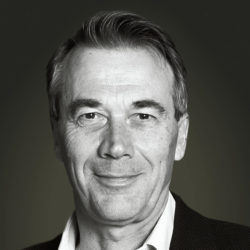
Wiemer Salverda is Professor of Labour Market and Inequality and Director emeritus of the Amsterdam Institute for Advanced Labour Studies (University of Amsterdam). He coordinated the 30-country research project Growing Inequalities’ Impacts GINI (2010–2013) which published its results in two volumes with Oxford University Press (2014). He managed the European Low-wage Employment Research Network LoWER (1996–2008), which has published 16 books, special journal issues and reports, including the Oxford Handbook of Economic Inequality. For the Russell Sage Foundation he led the Dutch research for the Low-wage Work in Europe project. He contributes extensively to comparative research on wages, employment, and inequality, and regularly serves as an expert for the European Commission, OECD and ILO. At the European Commission he was an ECFIN Research Fellow 2014-2015 for which he contributed on EU policy making and growing inequalities.
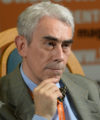 Daniele Checchi
Daniele Checchi
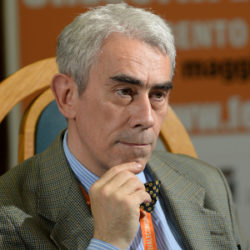
Daniele Checchi is currently Professor of Economics at the University of Milan (Italy). His research interests include the economics of education, intergenerational mobility, labour market institutions and union density.
 Ive Marx
Ive Marx
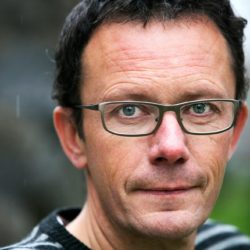
Ive Marx is professor at the University of Antwerp and directs the Master Program in Socioeconomics there. His main focus is on inequality, poverty and minimum income protection. Recent books include A New Social Question? (Amsterdam University Press) and Minimum Income Protection in Flux (Palgrave MacMillan). He is also co-editor of two volumes on Changing Inequalities in Rich Countries (Oxford University Press). He is currently preparing a Handbook on In Work Poverty (Edward Elgar).
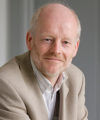 Brian Nolan
Brian Nolan
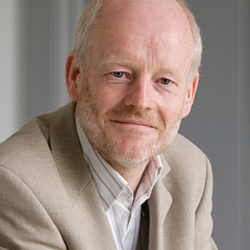
Brian Nolan is Director of the Employment, Equity and Growth Programme at the Institute for New Economic Thinking, Oxford Martin School, Professor of Social Policy at the Department of Social Policy and Intervention, and Senior Research Fellow at Nuffield College Oxford. His main areas of research are income inequality, poverty, and the economics of social policy. Recent books published by Oxford University Press include The Handbook of Economic Inequality (2008) co-edited with W. Salverda and T. Smeeding, Poverty and Deprivation in Europe (2011) co-authored with C. T. Whelan, The Great Recession and the Distribution of Household Income (2013), co-edited with S. Jenkins, A. Brandolini and J. Micklewright, and two co-edited volumes from the Growing Inequalities’ Impacts (GINI) EU FP7 project in 2014.
 Herman van de Werfhorst
Herman van de Werfhorst

Herman van de Werfhorst is professor of sociology at the University of Amsterdam, and director of the Amsterdam Centre for Inequality Studies (AMCIS). His work (mostly cross-nationally comparative) concentrates on two themes: inequalities related to education, and the societal consequences of economic inequalities.
Inequality in earnings, income and wealth has increased in many countries over the last 30 years but evidence shows that while there are many similarities in trends there is also a great degree of variation both between countries and within countries over time. The topic of interest in this Mini-Conference is to look beyond documenting trends in inequality to examine drivers of changing inequality, evidence of social and political impacts of changing inequality and the effectiveness of policy on combating inequality and any harmful consequences. We would also like to include extension to this work focusing on educational inequalities, in particular adult competences, and the distribution of wealth and intergenerational transmission.
This Mini-Conference will enable an evaluation of the results of the 30‐country (25 EU countries, Australia, Canada, Japan, Korea, and USA) and strongly interdisciplinary Growing Inequalities’ Impacts (GINI) research project, which were recently published in two volumes by Oxford University Press1, and provide a platform for presenting new work elaborating on these results and discussing the options and needs of further research in the same vein.
Details of the GINI project, including 30 extensive Country Reports and close to 100 Discussion Papers and a new dataset on inequalities since 1980, can be found at www.giniresearch.org.
The Mini-Conference will have three focus points:
1) Social and Political Impacts of Inequality
Convener: Herman van de Werfhorst, Univ. of Amsterdam
This session is particularly interested in contributions that examine the effects of changing inequality on potential outcomes; looking beyond cross country correlations between inequality levels and potential outcomes. Suggested subjects: effects of inequality in the fields of politics, attitudes, health, crime, social trust, and well‐being.
2) Educational Inequality: Adult Competences, Significance and Relationship with National Institutions
Convener: Daniele Checchi, Univ. of Milan
Educational inequalities remain one of the key drivers of economic inequality despite the fact that educational inequalities have fallen in many countries as earnings and income inequality increased. In this session we are interested in papers that explore the link between adult competences and labour market outcomes, particularly papers that examine the development, and deterioration, of competencies over the life course. Suggested subjects: competences and labour market; competence formation along the life course; competences and social participation.
3) Wealth Inequality and Social Mobility
Conveners: Ive Marx, Univ. of Antwerp and CSB, and Brian Nolan, Univ. of Oxford and INET
Established research on poverty and inequality has relied heavily on data measuring people’s income from work or social transfers. This has resulted in a large literature on the patterns of income inequality and the driving forces behind these. Due to data limitations, researchers were for a long time unable to include other financial resources people may rely upon in times of need, such as real estate, savings, inheritances, etc. Due to new data becoming available the study of wealth has gained prominence, with issues of intergenerational transmission and accumulation much at the forefront. This session welcomes papers dealing with these issues.
Inequality of What? Social Monitoring and the Difficult Choice of Analytical Concepts and an Implementable Metric
detailed info Andrea Hense
Andrea Hense
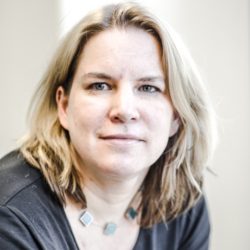
Andrea Hense is research associate at the Faculty of Sociology at the Bielefeld University in Germany. She is member of the transdisciplinary research network “Reporting on socioeconomic development in Germany” (soeb) and the collaborative research centre SFB 882 “From Heterogeneities to Inequalities”. Her research interests focus on social inequalities, atypical employment, life courses, and mixed methods. The soeb-network (www.soeb.de) seeks to contribute to the development of a science-based reporting on social inequality and to improve the understanding of social change in Germany. Within this framework, she analyses the causes and consequences of self-perceived job and income insecurities. She developed a theory-guided socio-structural explanatory model of self-perceived precarity and tested it empirically and still will analyse the impact of self-perceived precarity on marriages and divorces. The main goal of the SFB (www.sfb882.uni-bielefeld.de/en) is to analyse mechanisms that generate social inequalities. Within this framework, she analyses how and why temporary layoffs arise and examines the impact of an interrupted membership in an employing organization upon inequality over time. Thus, different mechanisms that give rise to inequality are analyzed using a mixed-method design.
 Jürgen Kaedtler
Jürgen Kaedtler
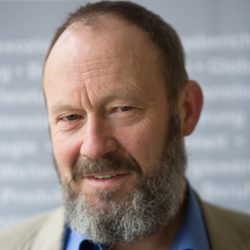
Jürgen Kaedtler is executive director of the Sociological Research Institute Goettingen (SOFI) and extraordinary professor at the Georg-August-University at Goettingen. He has worked on labor sociology, industrial relations and innovation for many years, with a special focus on the implications of globalization and financialization in these fields. Besides books and papers on these subjects he co-authored conceptual and resuming chapters of the “Second Report on Socioeconomic Development in Germany – Participation in Transformation” (soeb 2) with Nicole Mayer-Ahuja and Peter Bartelheimer. Currently, he is participating in the third phase of the transdisciplinary research network “Reporting on socioeconomic development in Germany”
 René Lehwess-Litzmann
René Lehwess-Litzmann
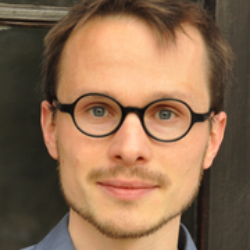
René Lehwess-Litzmann is a researcher at the Sociological Research Institute Goettingen (SOFI), Germany. He is interested in the evolution of socio-economic models in European countries, with a focus on the measurement of individual well-being and its production by households, labour-markets, and the state. René has been involved in the European research network project CAPRIGHT and is currently doing research in the context of the transdisciplinary research network “Reporting on socioeconomic development in Germany” (www.soeb.de), which he is also co-coordinating. He does conceptual work as well as quantitative analyses with micro-data. His doctoral thesis on the European agenda of flexicurity seen through the lens of Amartya Sen’s capability-approach has been published in 2014.
 Ortrud Lessmann
Ortrud Lessmann
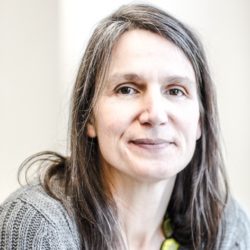
Ortrud Lessmann is a senior researcher at the Helmut-Schmidt-University Hamburg. An economist by training, her research interest lies in the overlap of economics, philosophy, philosophy of education and sociology. She has published widely across disciplines. After accomplishing a research project on conceptualizing justice and sustainability on the basis of the capability approach, she is currently conducting a research project on socio-economic aspects of sustainable consumption in the context of the transdisciplinary research network “Reporting on socioeconomic development in Germany”. She is the network co-ordinator of the Human Development and Capability Association (HDCA) and an editor of the Human Development and Capability Debates Series.
The growing debate on the degree of social inequalities stresses the need to achieve a common understanding of the kind of (in)equality in question. Analytical concepts and indicators that are suitable to measure inequalities are the very foundation of comparison: What dimensions, aspects, or aspirations are taken into account, and with what priorities? The discussion on social inequalities evolves both with different theoretical and normative choices and corresponding legitimizations and with the evolution of diverse scientific methods and data sources. There seems to be a broad consensus recently that GDP per capita cannot serve (any more?) as a good proxy for well-being on a macro level of society. This has induced a lively discussion on what should replace the outdated metric. This discussion is likely to impact social life in terms of practical policies, as public debate and political decision-making on (in)equalities are framed and informed by social indicators and monitoring systems. Accordingly, there have recently been a number of high-level initiatives from the political sphere which aimed at an improved measurement of human well-being. It stands out that there is still an important gap between the theoretical debate on highly sophisticated concepts of social (in)equalities on the one side and their effective implementation in (in)equality measurements and social monitoring on the other side. Moreover, the understanding of the emergence of social inequalities requires analyses of its driving forces on the meso and the micro level of society. The Mini-Conference focuses on different metrics of inequality which are discussed in different disciplines and the political sphere, on their justification, and on the methodology of implementation.
Invited for the Mini-Conference are theoretical as well as empirical (and potentially interdisciplinary) contributions which deal with one or several of the following questions: What kind of analytical concepts and indicators are suitable to measure social inequalities? How big is the overlap between alternative approaches, and what are their important differences (advantages, disadvantages)? What possibilities are there for combining different approaches? What new approaches are made possible by recent data trends and research methods? What impact have recent political initiatives had on the practice of inequality monitoring so far? Are there similar approaches in different countries? How can yardsticks used for the measurement of social inequalities (dimensioning, weighting, thresholds) be justified in practical research? What are the political implications of different concepts of (in)equality and social monitoring?
Mixed Market Economies in the Recession: The Issues of Growth, Employment, and Equality
detailed info Luigi Burroni
Luigi Burroni

Luigi Burroni is Associate Professor of Economic Sociology at the University of Florence (Italy). His research interests focus on the fields of local and regional development, industrial relations and comparative capitalism. He published on these topics in many international journals such as Socio-economic Review, Economy and Society, International Journal of Industrial Relations, Environment and Planning C, Transfer. His recent publications include Competitive regionalism and the territorial governance of uncertainty, in Transfer: European Review of Labour and Research, n.1, 2014; Collective bargaining, atypical employment and welfare provisions: The case of temporary agency work in Italy (with Marcello Pedaci) in Stato e Mercato, n.2, 2014. He was co-editor of the journal EPC: Government and Policy and he is part of the editorial board of Stato e Mercato. He has served as expert to the Italian Ministry of Treasury, the OECD, the European Commission.
 Emmanuele Pavolini
Emmanuele Pavolini

Emmanuele Pavolini is Full Professor in Economic Sociology and Social Policy at the University of Macerata (Italy). As an economic sociologist he has focused his research interests in two fields: a) welfare state studies from a comparative perspective, different social policies (i.e. family policies, elderly care / LTC, child care, social care and health care and, more recently, education), inequalities in the access to welfare state provision, occupational welfare, welfare mix and third sector organizations; b) labour market research and economic development, with a focus on the changing roles of professionals, networks among enterprises, strategies for competitiveness, and the role of migrants in the labour market.
He is a National Expert for Italy of the European Commission Expert Network ESPN (European Social Policy Network).
He is currently co-editor of the Journal of European Social Policy.
 Roberto Pedersini
Roberto Pedersini

Roberto Pedersini is Associate Professor of Economic Sociology and Director of the interdepartmental research centre “WTW – Work, Training and Welfare” at the Università degli Studi di Milano. His main research interests concern labour market regulation and policies and industrial and employment relations. He has both participated and coordinated several research projects in these fields since the early 1990s at both national and international level. He has collaborated with the International Labour Office and collaborated as an expert with the European Commission and the European Foundation for the Improvement of Living and Working Conditions in several occasions. His recent publications include Economic crisis and the politics of public service employment relations in Italy and France (with Lorenzo Bordogna, in European Journal of Industrial Relations, vol. 19, no. 4, 2013), Coping with the crisis in Italy: Employment relations and social dialogue amidst the recession (with Marino Regini, ILO, 2013) and contributions to Sociology of Work. An Encyclopedia (V. Smith, ed., Sage Publications, 2013).
 Francesco Ramella
Francesco Ramella

Francesco Ramella is professor of Economic Sociology at the University of Torino (Italy), where he is President of the Undergraduate Programme in “Social and Political Sciences” and Director of the International MAPS Programme (Advanced Master in Public Policy and Social Change). He is also the Editor of the journal “Stato e Mercato”, a member of the Editorial Boards of “Environment and Planning C: Government and Policy” and “South European Society & Politics”. He has carried out extensive research on innovation, local development and urban policies.
Among his recent works in English: Sociology of Economic Innovation (Routledge 2016); Fab Labs in Italy: Collective Goods of the Sharing Economy (with Cecilia Manzo, in “Stato e Mercato” 2015, forthcoming) Political Economy (in G. Ritzer, ed., The Blackwell Encyclopedia of Sociology, Blackwell 2015, forthcoming); Surfing between State and Market, for One Hundred Times (in “Stato e Mercato” 2014); Society, Politics and Territory in Italy: What is Left? (in “South European Society & Politics” 2010); Negotiating Local Development: The Italian Experience of “Territorial Pacts” (in “Environment and Planning C: Government and Policy” 2010).
During recent years a rising attention has been devoted to the analysis of varieties of capitalism others than LMEs and CMEs, and the definition of ‘mixed market economies’ (Molina and Rhodes, 2005) has been fruitfully adopted to gather together models of political economy of countries like Spain, Italy, Greece and Portugal, countries characterized by high level of inequality and by a low level of economic competitiveness. These countries share relevant similarities but it is also possible to identify many differences in the production structure, in the regulatory architecture and in the role and strategies of collective actors as well as in the ways in which they are currently facing the crisis.
This Mini-Conference seeks contributions that focus on the political economy of Southern European countries, on their recent transformations, on the reforms that have been implemented to cope with the crisis, on the impact of austerity measures and the following popular protest movements. By doing so, it can help to understand why the recent socio-economic crisis has been severe and prolonged in four countries; at the same time, the Mini-Conference can contribute to better specify the main features of the so-called mixed market economies. For this reason, we encourage the submission of papers that analyze Southern-Europen focusing at least on one of the following fields: industrial relations (tripartite negotiations, collective bargaining, etc.), welfare (pensions, social security provisions, etc.), labour market (flexibilisation, labour productivity, etc.), industrial policies (support to R&D activities, incentives to firms, etc.), regional policies (territorial pacts, support to local cluster in traditional and advanced sectors, etc.) and systems of innovation (national, regional and sectoral systems, innovation policy mix, etc.). All papers shall engage with the definition of ‘mixed market economies’ and address the issue of developing an analytical framework for cross-country analysis. With this specification, both single country and comparative papers are welcome.
Multinational Firms: Labor, Management, and Society
detailed info Phil Almond
Phil Almond

Phil Almond is Professor of International Management at Loughborough University London. He is also a lead researcher at the Interuniversity Research Centre on Globalization and Work (CRIMT), and organiser of the Comparative Employment Research Collaborative Network (CERCnet). His research interests concern the theoretical and practical challenges of the governance of work and employment in contemporary capitalism. He is the editor, with Anthony Ferner, of American Multinationals in Europe (Oxford University Press, 2006), and more recently has worked on the relations between foreign multinationals and actors in regional business systems across Canada, Ireland, Spain and the UK. He is currently working on ESRC-funded research on the resources mobilized by actors in the creation, diffusion, interpretation and negotiation of norms concerning the global coordination of human resources within multinationals.
 Tony Edwards
Tony Edwards

Professor Tony Edwards became Head of the Department of Management at King’s College London in August 2014, having previously carried out a wide range of roles in the department since joining King’s in 2002. Tony’s research focuses on the management of labour in multinational companies. One strand of this work has examined the ways in which multinationals identify innovative practices in their international operations and subsequently diffuse these across the firm. Other strands have investigated the influence of the US business system on employment relations in American MNCs and the management of human resources during and after international mergers and acquisitions. Tony has been a lead researcher in the INTREPID network, a large international team of researchers that have carried out large-scale surveys of employment practice in multinationals in a range of countries, collaboration with a number of other national teams including China currently. Tony is also embarking on new research into ‘globalizing actors’ in multinational companies.
 Gregor Murray
Gregor Murray

Gregor Murray holds the Canada Research Chair on Globalization and Work in the School of Industrial Relations at the University of Montreal (ERIUM). He is also director of the Interuniversity Research Centre on Globalization and Work (CRIMT), which is an interdisciplinary centre linking researchers in a variety of universities and research institutes to a research program on the theoretical and practical challenges of actor and institutional renewal for the regulation of work and employment. Gregor’s particular research interests include international comparisons of employment relations, human resource practices, labour law and subsidiary embeddedness in multinational companies. He also works on union capacity and innovation, with a particular focus on the comparative analysis of workplace unions.
This Mini-Conference aims to explore, on a critical basis, how the relations between the multinational firm and societal institutions affect the world of work. We seek studies that seriously explore the “transnational social space” (Morgan, 2001) within and around MNCs, and how actor choices are shaped. Priority will be given to papers which address how the coordination of value creation and exploitation by MNCs shapes structures of inequality, either directly (through wage structures or the international diffusion of managerial norms) or through effects on the institutional structures governing work and employment. We particularly welcome submissions from sectors and geographies which remain underrepresented in the existing literature.
The Mini-Conference is organized into four themes:
- The International Firm as Employment System – Research on employment relations and human resource management in multinationals tends, typically, to examine foreign multinationals in one or more host economies. While there are obvious practical reasons for this, it does mean that the employment systems of multinationals across their international operations (both internal and across value chains) are somewhat underexplored within this literature. This panel therefore seeks work that takes a holistic view in analyzing how multinationals construct international systems for the management of their workforces, taking account of the varied dynamics of integration and differentiation.
- Multinationals and Social Regulation – MNCs’ employment systems interact with formal and informal social regulation at a variety of geographical levels, from the local to the transnational. As there is an extensive literature in this general area, this panel will strongly prioritize papers which analyze specific attempts to create novel, and possibly hybrid, responses to the problem of regulating work and employment in multinational firms. What is the nature of these responses and what is their potential for dealing with the social challenges posed by global firms?
- Regime Shopping, Resource Shopping and Local Responses – This panel explores the ways in which local/national host economy actors seek to build and maintain links to global production networks through attracting and retaining FDI. In particular, it focuses on attempts to foster comparative advantage on the basis of the institutional resources of business and employment systems. Can places find ways of competing for FDI through institutional renewal and experimentation, or do the power resources of multinationals mean such experiments are doomed to failure?
- Actor Globalization and the Negotiation of Norms – This panel probes the processes involved, and capabilities needed, in creating, negotiating or challenging global norms, both within multinationals and across their wider networks of value. In other words, what insight can we develop on the individual, institutional and organizational factors shaping the ability of actors to operate in relation to the complex international systems of the MNC?
Regulatory Intermediaries: Bringing together Domestic and Transnational Regulation
detailed info Kenneth Abbott
Kenneth Abbott

A leading scholar in international law, Kenneth Abbott’s teaching and research focus on the interdisciplinary study of international law and international relations, including public and private institutions, environmental issues, development policy, global health, and international trade and economic law. He also has a faculty appointment in the ASU School of Global Studies, where he co-directs the global environmental governance program.
Before joining the faculty in 2006, Professor Abbott taught for more than 25 years at Northwestern University School of Law, where he held the Elizabeth Froehling Horner Chair in Law and Commerce. He also served as director of the Northwestern University Center for International and Comparative Studies. Professor Abbott participates actively in conferences and research projects in both international law and international relations and has spoken and taught in many countries. He has served as Chair of the International Economic Law Interest Group of the American Society of International Law. Professor Abbott also practiced law at Harris Beach LLP in Rochester, N.Y., served in the VISTA Lawyer’s Program, and was a research fellow at Harvard Law School.
Professor Abbott is a member of the editorial boards of International Theory, the Journal of International Economic Law and the Journal of International Law and International Relations.
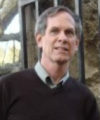 Duncan Snidal
Duncan Snidal
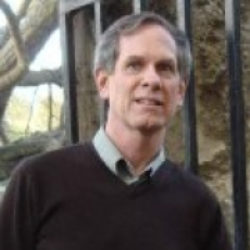
Duncan Snidal is Professor of International Relations at Nuffield College, University of Oxford. His research focuses on problems of international cooperation and institutions–including international law as well as both formal and informal international organizations–with an emphasis on questions of institutional design. Snidal is currently working on “Global New Governance” which examines multi-partner arrangements governing transnational production, as well on the emergence of informal international organizations (such as the Concert of Europe and the G20) as distinctive forms of international governance. He is co-editor of a forthcoming volume on International Organizations as Orchestrators; his recent book on Institutional Choice and Global Commerce examines the evolution of international regimes for trade and commerce as a problem of institutional choice from a bounded rationality perspective that blends rationalist and historical perspectives Snidal is co-editor of International Theory: A Journal of International Politics, Law and Philosophy and of the Oxford Handbook of International Relations.
 David Levi-Faur
David Levi-Faur
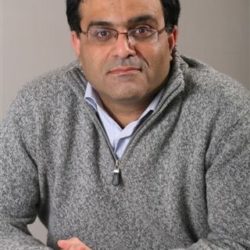
David Levi-Faur (Hebrew University of Jerusalem) is a Professor for Political Science and Public Policy. He is currently the chair of the Federmann School of Public Policy and hold joint appointment with the Department of Political Science of the Hebrew University. He held research and teaching positions at the University of Haifa, the University of Oxford, the Freie Universität Berlin, the Australian National University and the University of Manchester. He held visiting positions in the London School of Economics, the University of Amsterdam, University of Utrecht and University of California (Berkeley). His work includes special issues of the Annals of the American Academy of Political and Social Sciences (The Global Diffusion of Regulatory Capitalism, co-edited with Jacint Jordana) and Governance (Varieties of Regulatory Capitalism). More recently he acted as editor of the he Oxford Handbook of Governance (OUP, 2012) and The Handbook of the Politics of Regulation (Edward Elgar, 2011). For the last nine years is also a co-founding editor of Regulation & Governance, a journal that serves as a leading platform for the study of regulation and governance in the social sciences.
Rule-makers and rule-takers often require various forms of assistance and outside resources to accomplish their goals. To this end, they may engage (or are engaged by) intermediaries which act on behalf of them, or in conjunction with them, to achieve their goals. These intermediaries – their function, interests, successes and failures stand at the center of our conceptualization of regulation and the regulatory process as a three-way game. Intermediaries can be private actors such as for-profit accreditation agencies or accounting firms; they can be civil society groups (NGOs) that have an interest in the issue at hand; or they can be other governmental bodies such as international organizations. Intermediaries may play various roles ranging from providing expertise and feedback to facilitating compliance and building communities of compliance. Focusing attention on intermediaries expands the scope of regulatory analysis beyond rule-makers and rule-takers to include key agents (who sometimes turns principals). It further emphasizes that regulation often operates indirectly and provides a way for regulators and rule-takers to expand their capacities. In the spirit of this program section, attention to intermediaries takes regulatory analysis beyond “the institutional confines of the state and legalistic policy mechanisms” and across the national-international regulatory divide. Of special interest are the relative effectiveness of different regulatory arrangements, the autonomy of intermediaries, and how intermediaries shape the regulatory dialog and affect power relations among regulatory actors.
Panels will examine both conceptual and theoretical issues regarding intermediaries and the use of intermediaries in a wide range of regulatory settings. Of special interest are the different roles of intermediaries in principal-agent delegation versus orchestration and at the transnational versus domestic level. This is a continuation of on-going research into the role of intermediaries in domestic, international and transnational regulation. It will be organized around a draft framework paper by the organizers (available January 31, 2015) that refines the concept of intermediary and proposes a set of hypotheses.
Papers for these panels will be guided by the framework to
- Clearly identify the intermediaries in their analysis and their relationships with rule-makers and rule-takers.
- Consider how intermediaries shape the regulatory dialog and affect power relations among regulatory actors.
- Analyse how intermediaries affect the content and effectiveness of regulation
Individual papers are asked to evaluate the hypothesis as they apply to their case or area of analysis. The goal is to develop systematic knowledge regarding the impact of intermediaries and perhaps to collect revised versions of some papers into an edited volume.
Scrutinizing Organizational Inequalities: New Theoretical and Empirical Approaches
detailed info Nina Bandelj
Nina Bandelj
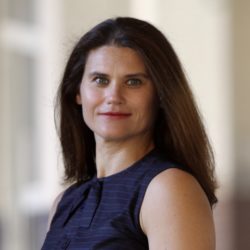
Nina Bandelj is Chancellor’s Professor in the Department of Sociology at the University of California, Irvine. She is an economic sociologist interested in how relational work, emotions, culture and power influence economic processes and has published widely, including in the American Sociological Review, American Journal of Sociology, Nature Human Behavior, Proceedings of the National Academy of Science, Social Forces and Socio-Economic Review. Her books include From Communists to Foreign Capitalists (2008); Economic Sociology of Work (2009); Economy and State (with Elizabeth Sowers, 2010); The Cultural Wealth of Nations (with Frederick F. Wherry, 2011); Socialism Vanquished, Socialism Challenged (with Dorothy Solinger, 2012); and Money Talks (with Frederick F. Wherry and Viviana A. Zelizer, 2017). Her newest book on The Emotional Economy of Parenting is forthcoming with Princeton University Press.
Bandelj is Past President of the Society for the Advancement of Socio-Economics and elected member of the honorary Sociological Research Association. She was Vice-President of the American Sociological Association, longtime and first woman editor of Socio-Economic Review and the inaugural associate vice provost for faculty development at UC Irvine.
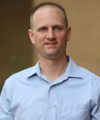 Andrew Penner
Andrew Penner
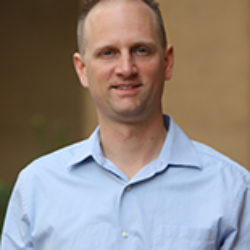
Andrew M. Penner is Associate Professor of Sociology and Director of the Center for Administrative Data Analysis at the University of California, Irvine. His research addresses questions surrounding inequality, paying particular attention to how society creates categories and sorts people into them, and the consequences of these categorization processes. Substantively, his work focuses on racial categorization and inequality, international gender inequality, and how educational categories shape students’ longer term trajectories of well-being. He has extensive experience working with administrative records in the United States, Norway, the Czech Republic, and Slovenia, and together with Ken Dodge is editing the Russell Sage Foundation journal’s special issue on administrative data. His previous work has appeared in the top general science (Science, PNAS) and interdisciplinary journals (Demography, Journal of Marriage and Family), as well as a range of disciplinary journals (American Journal of Sociology, Journal of Educational Psychology, Industrial and Labor Relations Review), and been supported by the Russell Sage Foundation, the Spencer Foundation, the National Science Foundation, and NICHD.
 Donald Tomaskovic-Devey
Donald Tomaskovic-Devey

Donald Tomaskovic-Devey is Professor of Sociology at the University of Massachusetts-Amherst and the Director of the Center for Employment Equity. He also convenes the Comparative Organizational Inequality Network (COIN), which includes thirty-plus scientists from fifteen countries exploring organizational inequalities with longitudinal linked employer-employee data. His work has won numerous awards and has held visiting faculty appointments in Australia, France, Germany, the Netherlands, Slovenia, Sweden, and Denmark. He is currently doing research on organizational inequality variation, intersectional wage gaps, and developing theoretical and empirical models based on relational inequality theory. Recent publications from these projects have appeared in PNAS, PLosOne, Socio-Economic Review, Industrial and Labor Relations Review, the American Sociological Review, and the American Journal of Sociology. He has published four monographs, including Recapitalizing America: Alternatives to the Corporate Distortion of National Policy (Routledge, 1983), Gender and Racial Inequality at Work: The Sources and Consequences of Job Segregation (Cornell, 1993), Documenting Desegregation: Racial and Gender Segregation in Private Sector Employment since the Civil Rights Act (Russell Sage Foundation, 2012). His most recent monograph, with Dustin Avent-Holt, Relational Inequalities: An Organizational Approach (Oxford, 2019), won the best book awards from two sections of the American Sociological Association.
This Mini-Conference takes advantage of the growing literature on inequality in organizational settings. Most studies of inequality focus on the national distribution of income across households or earners, but neglect the organizational production and distribution of respect and rewards. We are particularly interested in relational inequality approaches, but are open to any papers that stress the central role of organizational processes, the relative power and status of actors, and institutional contexts in the generation of inequality. All methodological approaches are welcome and we hope to highlight the complementarity of ethnographic, historical, and quantitative approaches to inequality dynamics. We are particularly interested in papers that are comparative across organizations, countries, or time. Papers using longitudinal employer-employee data are especially encouraged and we hope to have a session to discuss the development of a comparative inequality project using such data.
The eventual organization of sessions will reflect the papers submitted, but potential sessions topics might include:
- The juncture of interaction and organizational practices in the production of inequalities
- Institutional influences on organizational inequality regimes
- Citizenship, gender, race/ethnicity, and class intersections in organizational context
- The production and distribution of economic value in workplaces
- The role of organizational inequality in national inequality trends
- Relational inequality theorizing
Submissions for panels will be open to all scholars on the basis of an extended abstract, which needs to be uploaded via a regular SASE submission system by SASE deadline. Selected participants must submit a completed paper to discussant and organizers by June 1, 2015. If a paper proposal cannot be accommodated within the mini-conference, it will be forwarded to the most appropriate research network as a regular submission.
Social Coalitions, Political and Economic Crises, and Diversity of Capitalism
detailed info Bruno Amable
Bruno Amable

Bruno Amable is professor of political economy at the University of Geneva, on leave from the University of Paris I Panthéon-Sorbonne. He has been a member of SASE since last century, and an editor of Socio Economic Review since 2010. His current research focuses on comparative capitalism and the political economy of institutional change. He has published several books, in particular The Diversity of Modern Capitalism (OUP 2003), Libéralisation, innovation et croissance, faut-il vraiment les associer ? (with Ivan Ledezma, Editions rue d’Ulm 2015), and more recently L’illusion du bloc bourgeois (with Stefano Palombarini, Raisons d’Agir 2017) / von Mitterrand zu Macron(Suhrkamp 2018) and Structural Crisis and Institutional Change in Modern Capitalism, French Capitalism in Transition (OUP 2017). His research has appeared in journals such as Industrial Relations, Journal of Institutional Economics, Socio Economic Review, Oxford Review of Economic Policy, and Industrial and Corporate Change among others.
 Hideko Magara
Hideko Magara

Hideko Magara (Ph.D. University of Chicago) is Professor of Political Science at Waseda University in Tokyo. She is the author of various books and articles on comparative politics. Her recent works include an edited volume Economic Crises and Policy Regimes: The Dynamics of Policy Innovation and Paradigmatic Change (2014), a co-edited volume with Stefano Sacchi The Politics of Structural Reforms: Social and Industrial Policy Change in Italy and Japan (2013), and articles such as “Divergent Fate of Left Parties in Political Economic Regime Transitions: Italy and Japan in the 1990s,” in M. Ido, ed., Varieties of Capitalism, Types of Democracy and Globalization (2012). She is presently heading an international research project, Growth, Crises, Democracy: The Political Economy of Social Coalitions and Policy Regime Change, which introduces a new research design to analyse how political leaders and citizens can overcome the weaknesses inherent in democracy and escape from an economic crisis by establishing an effective social coalition. Magara was formerly President of the Japan Association for Comparative Politics, and she is currently an associate member of the Science Council of Japan. She received the Cavaliere Medal from the President of Italy for her contribution to the studies of Italian politics.
Most non-liberal varieties of capitalism have experienced neoliberal structural reforms which have transformed them to various extents over the past few decades. These reforms have been met with varying degrees of social and political opposition, but in most cases, the socio-political coalitions which supported the previously existing institutional architectures have been unable to prevent the evolution towards neoliberal capitalism. In some countries, the transition has led to major transformation of the social and political landscape (number and identities of political parties, trade unions’ structure, political coalitions…) as well as important economic structural change; in others, the transformations have been less drastic. The Great Recession, originally held to be the final crisis of neoliberal capitalism, has not questioned this evolution in a significant way, and in some cases even accelerated it.
This Mini-Conference will address the issue of the transformation of non-liberal political economies in relation with the socio-political coalitions that either support or oppose the evolution towards neoliberal capitalism. It welcomes contributions from economics, political economy, political science, economic history or sociology.
The following themes could be addressed:
- How have the dominant social and political compromises evolved over the past few decades? Has the Great Recession had an impact?
- Are there emerging models of capitalism which are hybridisations of neoliberal and non-liberal capitalism?
- What transformations in the social (class or cross-class) coalitions that support the emerging models?
- Are these coalitions stable, do they represent a social and political equilibrium?
- Internal evolution vs. pressures from the external environment: how do international relations and external constraints influence the evolution of national political economies?
The Foundational Economy
detailed info Ewald Engelen
Ewald Engelen
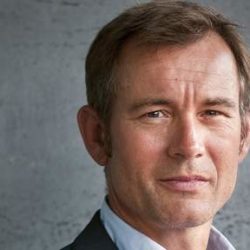
Ewald Engelen is Professor of Financial Geography at the University of Amsterdam. He has published on financialization, International Financial Centers and the crisis. His current research interest is in elite responses to the Great Financial Crisis.
 Julie Froud
Julie Froud
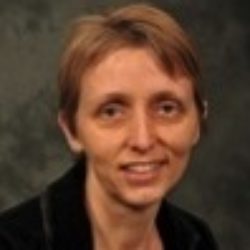
Julie Froud is Professor at Manchester Business School, UK and has been a member of the Centre for Research on Socio-Cultural Change (CRESC). With colleagues she has worked on financialization for more than 10 years, including financial intermediaries and new forms of elite power. Current research brings analysis of financialization into the study of the mundane via outsourcing of public services and provision of other foundational activities.
 Angelo Salento
Angelo Salento

Angelo Salento is assistant professor of Sociology in the University of Salento (Lecce – Italy), where he teaches Sociological analysis of development. He graduated summa cum laude in Jurisprudence in the University of Bologna, and received the PhD in Sociology of law in the University of Milan. He has also been teaching Organisational theory, Contemporary social theory and Sociology of law. His research deals with social theory, the regulation of economy, local development, the transformation of labour law, the financialisation of economy and companies. He has written four books (on the transformation of labour law, on Pierre Bourdieu’s social theory, on the financialisation of companies in Italy) and about 30 papers and book chapters. In 2014 he has been fellow researcher in the CRESC, Manchester University. He’s currently coordinating a research programme on the foundational economy in Italy.
 Karel Williams
Karel Williams

Karel Williams is professor at Manchester Business School and an editor of the Manchester Capitalism book series (manchestercapitalism.co.uk). This continues the “follow the money” research into mundane sectors like railways and meat supply pioneered at the CRESC research centre. This team of CRESC researchers and previously worked on financialization and financial crisis and published books like Financialization and Strategy (2006) and After the Great Complacence (2011).
There is growing interest in the foundational economy which produces mundane goods and services like health, transport, utilities and food. Necessary to everyday life, these are consumed regardless of income and distributed through branches and networks; they employ 30-40% of the workforce in high income economies. Citizens’ material well-being and cultural participation depend on accessible foundational goods and services. Moreover, the identity, condition and capacity of regions depends on how well foundational organisations are grounded in their territories.
Foundational activities are increasingly mismanaged in financialized economies: by public companies, private equity or government agencies. Mismanagement takes the form of ‘point value’ transactions at a node, managing for most profit or least cost regardless of social consequences for other stakeholders. Blocking financialization and reorganising foundational sectors could provide a way to lever improved outcomes.
This justifies practical experiments in providing foundational goods and services in ways that generate more benefit for local communities. But it also resumes intellectual work on reconceptualising the heterogeneity of the economy. This is classically represented by Braudel’s insight that there were ‘not one but several economies’ from the 15th-18th century; the present day economy is not singular and includes several zones with different logics. The idea of a foundational zone is thus associated with a re-valuation of the mundane and its importance in the lives of citizens.
The Mini-Conference panels will explore such themes, drawing on a variety of disciplinary and interdisciplinary resources, including those of economic sociology, geography, political economy, development studies and management. The organisers welcome papers on topics including, but not limited to:
- Papers that explore issues of definition and measurement around the foundational economy, relating to heterodox concepts of the economy which emphasise territoriality, informality and the mundane, including the commons and the civil economy. Or, use official statistics and other data to develop innovative kinds of measurement.
- National and sector case studies are relevant because they engage activity specifics and incidentally undermine ideas about generic fixes (like competition). Comparative work could consider the difference between (high and low income) countries in areas like utilities and food distribution. While experiments in economic and social provision in food, micro-finance and energy et al. offer insights into different ways of organising, financing and delivering foundational goods and services.
- Studies based on conceptualisation and framing using the history of economic and political thought about economies of heterogeneous zones and the imposition of new logics, as in the work of Polanyi and other theorists of capitalism. Political experiments raise questions about the identity of actors and the balance between centralisation and the sub-national, national and supra-national levels.
- Papers about how this reframing raises challenges about the role of academics as observers of change, partners in experiments and, in some cases, as activists. Here the science and technology understanding of experiment may be as important as mainstream political science.
The Politics of Egalitarian Policy
detailed info Lucy Barnes
Lucy Barnes

Lucy Barnes is Lecturer in Quantitative Politics at the University of Kent, having previously held postdoctoral positions at Nuffield College, Oxford and Trinity College, Dublin. She received her PhD in Political Economy and Government from Harvard University.
Lucy’s research focuses on the comparative political economy of advanced industrial democracies, with particular attention to the politics of taxation as both redistributive instrument and fiscal policy lever. This work spans experimental, statistical, comparative and historical approaches to both individual-level preferences and national policy outcomes. Her recent publications include pieces in the Socioeconomic Review, Political Studies, and major university presses. Lucy is currently working on a number of experiments investigating attitudes towards taxation and fiscal policy; a book project on the politics of progressive taxation in comparative context; and on the redistributive and fiscal politics of the recent financial crisis and ongoing Great Recession.
 Tim Hicks
Tim Hicks

Tim Hicks is a Lecturer in Public Policy in the Department of Political Science at UCL. Previously, he worked as Ussher Assistant Professor of Political Economy at Trinity College, Dublin. He has been a visiting student at Yale (2009) and a Visiting Assistant Professor at the University of British Columbia (2014), and continues to serve as a Visiting Research Fellow at Trinity College, Dublin.
Tim’s research interests are at the intersection of comparative politics, comparative political economy, and public policy, with a focus on ‘developed democracies’. Specifically, he is working on three projects that fall broadly within the realms of the politics of inequality. The first, in collaboration with Lucy Barnes (Kent), looks at how the Great Recession impacted attitudes towards government expenditure. The second, in collaboration with Alan Jacobs (UBC), Scott Matthews (MUN), and Eric Merkley (UBC), looks at specific mechanisms through which economic inequality can lead to political inequality – especially relating to economic voting and economic information amongst the electorate. The third looks at the relationships between societal inequality and the politics of school choice and privatization.
The dramatic increases in income inequality and attention to it highlighted by the theme of the 2015 SASE meetings have major political ramifications. Indeed, in the early decades of the 21st century, the study of economic inequality has permeated the discipline of political science as well as the discourse of politicians. But what tools are available to policy makers who would seek to fight rising inequality? How is policy shaped by the electoral constraints and voter preferences? Do traditional policies and structures of political competition still allow for the articulation of egalitarian – or anti-egalitarian – goals in politics? What kind of role can domestic politics play in combating inequalities resulting from global processes?
This mini-conference seeks to provide a specific, political focus in the context of the broader interdisciplinary dialogue on inequality provided by the conference. We invite papers addressing the political determinants of inequality and policy responses to it. We welcome submissions using a variety of methodological approaches, including experimental, statistical or qualitative comparisons oriented towards causal explanations; as well as historical, statistical and qualitative empirical descriptions.
We particularly encourage submissions centred on the following themes:
- Information. What do voters know about government efforts to reduce inequality? Are some voters more informed about redistribution than others, and why? How do the media affect voters’ information and perceptions of egalitarian policy?
- Preferences. How do voters think about government efforts to reduce inequality? What kinds of policy interventions garner popular support? What are the electoral implications of these popular attitudes? (How) do these vary across countries?
- Pre-distribution. What influence can governments have on the distribution of market (‘pre-fisc’) incomes? What kinds of policies– aside from tax and transfer redistribution– can reduce inequality?
- Partisan politics. How does partisan politics shape distributive policy, and vice versa? Under what conditions, and in which policy areas is there scope for partisan discretion? Conversely, what effects does increasing inequality have on partisan politics?
- International Issues. What effects do international dynamics– war, globalisation, international institutions and processes of competition and diffusion– have on government efforts to combat inequality? How should issues of inter-country inequalities inform policy and scholarship on income inequalities?
Transnational Trade Unionism and MNCs: Building New Capabilities to Reduce Inequalities
detailed info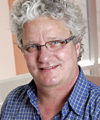 Christian Lévesque
Christian Lévesque
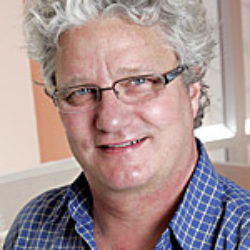
Christian Lévesque is a professor of Employment Relations at HEC Montréal, Co-director of the Interuniversity Research Centre on Globalization and Work (CRIMT) and has a professorship in employment relations and institutional innovation. His research focus concerns the impact of globalisation on trade unions, employment practices in multinational corporations and union-management relations. He has done extensive fieldwork in various parts of the world, including México, various countries in Europe, Ghana and China. He has published on trade union renewal, comparative employment practices in multinational corporations and transnational union action. He has co-edited two books and seven special journal issues and published numerous articles and book chapters.
 Peter Fairbrother
Peter Fairbrother

Peter Fairbrother is a professor of International Employment Relations at RMIT University. He is also a core researcher at the Interuniversity Research Centre on Globalization and Work (CRIMT). He has researched and published widely on trade union renewal, industrial restructuring and regeneration and the privatisation and reorganisation of public services and utilities. His recent work focuses on the mobilisation of labour in relation to the social and political transition towards low carbon economies. He has published ten books and numerous articles and book chapters.
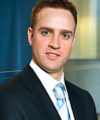 Marc-Antonin Hennebert
Marc-Antonin Hennebert
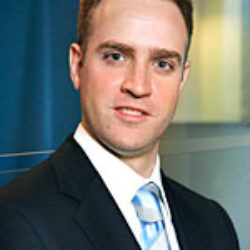
Marc-Antonin Hennebert is an assistant professor in HR and Labour Relations at HEC Montréal and a core researcher at the Interuniversity Research Centre on Globalization and Work (CRIMT). He holds a PhD from Université de Montréal and recently completed a postdoctoral fellowship in the Department of Management at King’s College London. His recent research looks at the emergence of new forms of international labour regulation, such as corporate codes of conduct, global framework agreements and international collective bargaining and its impact on actors and their strategies. He has recently published several articles and a book on international union alliances.
Over the last two decades the balance of power between capital and labor has significantly shifted in favour of the former. Through their integrated processes of production and distribution and their subcontracting arrangements, MNCs are able to shift production across the global landscape and to extract value added activity in many locations. They are active in shaping globalization not only through the control of global value chains but also through their capacity to frame the agenda of economic and social development. In this process, governments have embraced neo-liberal agenda which both provide an opportunity for these developments as well as shaping and influencing outcomes. These developments raise pressing questions for trade unions and workers, notably with regards to their capacity to shape the world of work and employment.
This Mini-Conference is concerned with understanding the spatial extension of trade union action, in particular the development of new forms of collective mobilization and network-building to increase the resources and capabilities of local actors. It seeks to understand how transnational trade unionism and MNCs policies and strategies interact with and impact on the capacity of local actors to contribute to the enhancement of equity, democracy and distributive justice.
Transnational trade union action has expanded significantly over the past decades, and has taken a variety of shapes and trajectories. It is shaped by a variety of actors differentiated among functional and territorial lines within and between different sites of regulation. It is a top-down as well as a bottom-up process. It may involve the internalization of international issues and conflicts into the domestic arena or the spatial extension of specific practices and patterns of national influence into international context. In either case the result is a multilevel structure where the necessity to operate upward and downward scale shifting is a crucial ingredient for effective transnational action.
We invite papers that seek to deepen our understanding of the connections between trade union action at international, national and local levels and assess the impact of transnational trade union action on inequality. We welcome abstract and paper submissions from diverse theoretical and methodological perspectives that address the following themes:
- The shape, forms and logics of action of transnational trade union across different sectors and regions, such as Asia, Africa, Europe, North and South America.
- The relationships between trade union actors within the various forms of transnational trade union action.
- The policies and strategies of MNCs towards transnational trade union action and their impact on the patterns of employment relations within MNCs.
- The way different forms of transnational unions provide various outcomes in terms of reducing inequalities in working conditions or asymmetries in the power resources and capabilities of local actors within and across firms and regions.
- The conditions that enhance or limit the capacity of transnational trade unionism to create effective outcomes for workers and their community.
Uncertain Futures in Economic Decision Making
detailed info Jens Beckert
Jens Beckert

Jens Beckert is the director of the Max Planck Institute for the Study of Societies in Cologne, Germany. His main research field is economic sociology, particularly the correlation between economic processes and the social and cultural structures in which economic action is embedded. In recent years his work has focused on the role of expectations in economic decision-making and for capitalist development. In coming years this focus will shift to research on wealth and social inequality, building upon my earlier work on inheritance law. He is the author of numerous and influential articles and books in the field, including Imagined Futures. Fictional Expectations and Capitalist Dynamics (Harvard University Press 2016) and Uncertain Futures: Imaginaries, Narratives, and Calculation in the Economy (edited with Richard Bronk) (Oxford University Press, 2016).
 Richard Bronk
Richard Bronk

Richard Bronk is a Visiting Fellow at the European Institute of the London School of Economics and Political Science (LSE), where he taught political economy from 2000-2007. He was educated at Merton College, Oxford, and has an MA (Oxon) in Literae Humaniores (Classics and Philosophy). He then spent seventeen years in the City of London – with positions including head of European equities at Baring Asset Management, European equity strategist at Merrill Lynch, and Adviser on European capital markets and political economy at the Bank of England – before he joined LSE teaching staff.
Bronk is currently working on the dangers of analytical monocultures and the epistemology of markets. His approach to philosophy of economics is grounded in a history of ideas perspective as well as practical experience in financial markets and economic policy. He is author of two books, including The Romantic Economist: Imagination in Economics (Cambridge University Press, 2009). Recent publications include: Hayek on the wisdom of prices: a reassessment. In: Erasmus Journal for Philosophy and Economics, 6, 2013, 82-107. Reflexivity unpacked: performativity, uncertainty and analytical monocultures. In: Journal of Economic Methodology, 20, 2013, 343-349.
The central role of future orientation in contemporary economies is self-evident. Investments are made on the basis of expected future returns. Financial investors speculate on the future development of security prices. Product innovations seek to anticipate future technological or market developments but often create unanticipated novelties. Consumer purchases are based on the imagined future satisfaction of wants.
In many circumstances the future is inherently uncertain, not least because of the innovations, novelties and complex feedback loops that characterize modern capitalist economies. This raises the question of how economic actors form expectations or strategies, assess the likely outcome of their decisions, and learn to exploit the indeterminate future to their advantage. How do actors actually come to the assessments of future developments on which they rely to make their consequential decisions?
Economics usually assumes that expectations conform to certain canons of rationality and are based on probability calculations and the market elimination of systematic errors. In its behavioral variant, economics explores the psychological construction of regular biases in our assessments of the future. By contrast, sociology focuses on social structures, cultural templates, institutions and power to explain economic outcomes but largely ignores the role played by actors’ expectations of the future. In neither discipline has there to date been much systematic investigation into how actors assess or navigate the future when faced with radical uncertainty. For example, how do economic actors make decisions when the future is indeterminate because it has yet to be created by the innovations they and others will make? What is the relative importance of imaginaries, emotion or social narrative versus calculation in guiding behavior?
The mini-conference invites submissions of empirical and theoretical work on how – in conditions of uncertainty – actors form expectations regarding economic futures, and how these expectations then influence economic outcomes and policies. Submissions are invited from a range of disciplines and can include both qualitative and quantitative studies. Sessions will focus on the following areas:
- How do agents form expectations and make decisions in uncertain market conditions relating to consumption, investment, finance and innovation?
- How far is the future constructed (rather than predicted) through use of such instruments as economic forecasting, economic theories, risk modeling, accounting technologies, business plans or other market narratives? Do the narratives and models of certain market players have disproportionate impact on future outturns?
- How important to the stability of markets and the efficacy of economic policy making is the social, institutional and historical anchoring of expectations?
Other topics related to how we visualize the future and form future-oriented strategies in dynamic capitalist systems are possible.
Selection of the papers for the mini-conference will be made based on 1000 words abstracts. Authors selected for presentation of their research at the SASE conference will have to submit a full paper on June 1, 2015. There will be commentators for each paper.

